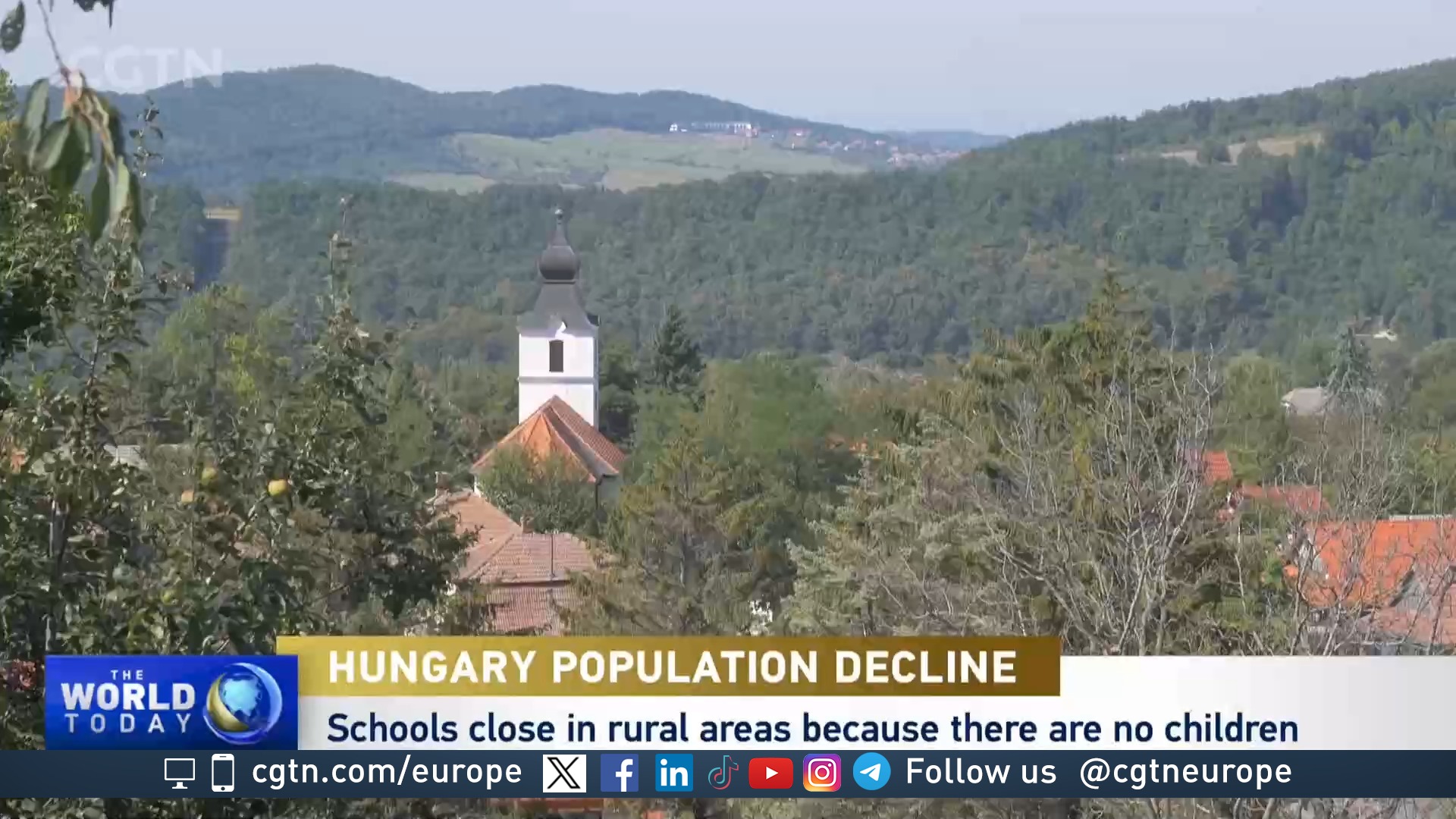03:04

WATCH: Pablo Gutierrez reports from Hungary
Hungary continues to grapple with a persistent population decline that has spanned four decades.
The most recent census put Hungary's population at around 9.6 million - a drop of more than a million. If the trend persists, the UN estimates Hungary's population will decrease by a third by 2070.
There is a town in northern Hungary where children's laughter is seldom heard. The only public playground in the village stands abandoned: a reminder of days when children used to play here.
"The last time a child was born in this village was nine years ago. I'm hopeful things will change," said Zoltan Kovacs, mayor of Garab in Hungary.
Garab boasts a mere 44 residents, one of Hungary's tiniest towns, most of whom are over 50. Mayor Kovacs is a lifelong resident of this town. His office is in the city hall, occupying the space where the village school once stood.
The school had to close because there were no more children."This is where I used to sit as a child in class; the teacher used to stand there. This room was full of children," said Kovacs.That has changed in Garab and many towns like it, as families have become smaller.

CGTN spoke to Hungarians who are worried about the population decline. /CGTN
CGTN spoke to Hungarians who are worried about the population decline. /CGTN
"It was typical in Hungary in the 1950s and 60s for women to have eight or more children; they have one or two now, if any," said Kovacs.
The Hungarian government has tried to boost the country's fertility rate by introducing a range of family support programs, including state grants and preferential loans for families.
Despite these initiatives, the number of live births has remained fairly consistent, at around 77,000 a year. The government acknowledges the disappointing statistics but stands by its economic programs.
READ MORE
Why Chinese carmakers should invest in F1
Morocco's mud brick housing buries earthquake survivors
Can Europe go green without China?
"The number of babies born of Hungarian parents in Austria or Germany is increasing fast, so we have an outflow of young people," said Bod Peter Akosa former Hungarian member of Parliament.
The population decline has been particularly significant in Hungary's rural areas. The northern Hungarian region where the town of Garab is located has experienced a significant population decrease, with the number of residents dropping by 184,000 in the most recent census.
At the same time, the proportion of people aged 65 and older has dramatically increased compared to other areas of the country.
But it's not just fertility rates causing Hungary's population to decline. Hajnal Kiss' son, like many in his generation, left the country in his 20s to pursue better opportunities elsewhere. "Many young Hungarians wrestle internally with remaining or departing the country. Many pack up and go because of the economy," said Kiss, a resident of Garab.
Critics of Hungary's population policies argue that a stronger focus should be on improving working conditions and boosting the country's quality of life so people don't choose to leave.
Many of those who emigrate are in their childbearing years. Unless changes are made, places like Garab risk becoming ghost towns.
Subscribe to Storyboard: A weekly newsletter bringing you the best of CGTN every Friday